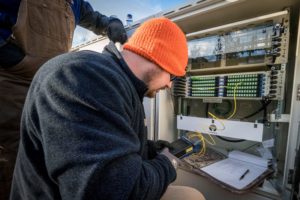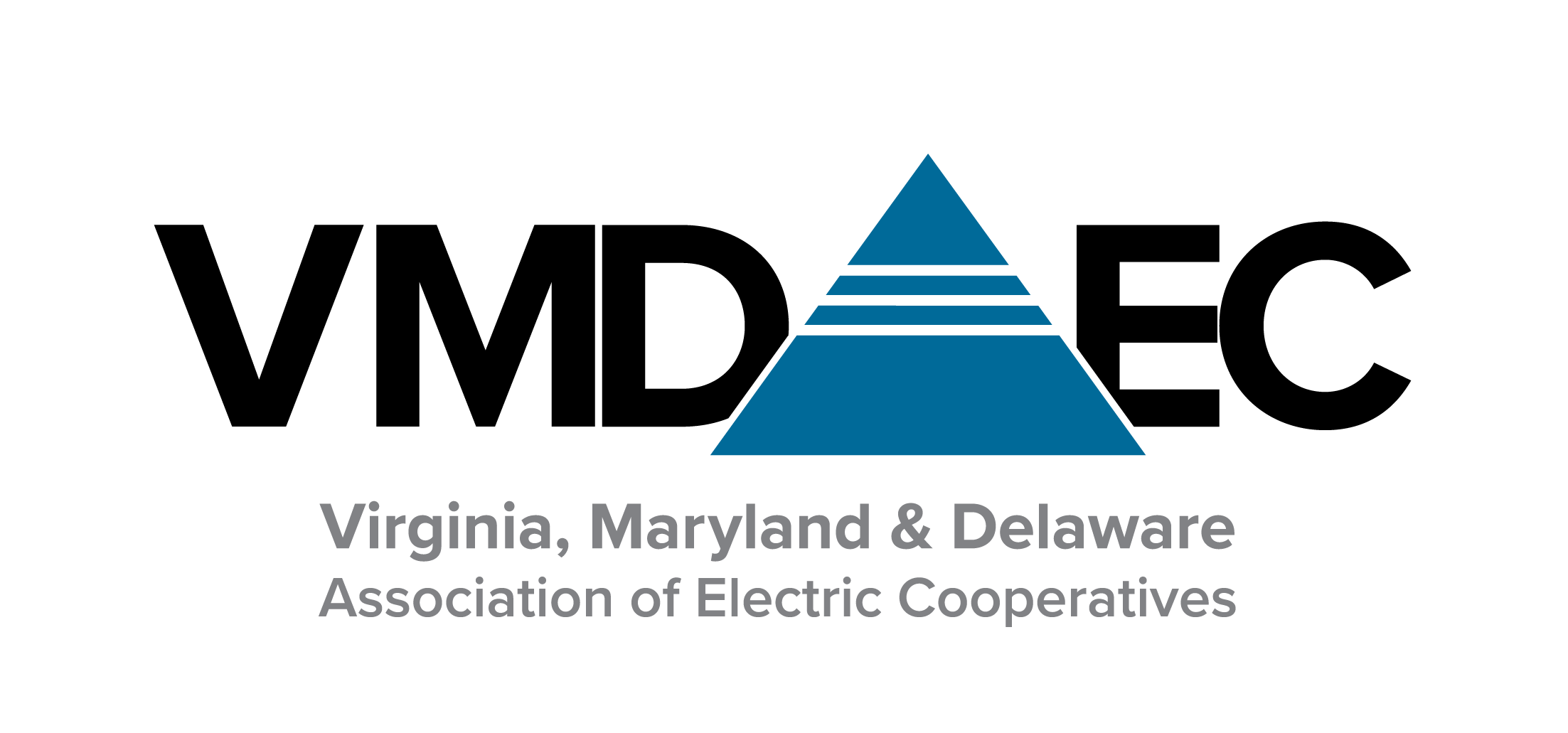Five electric cooperatives in Virginia and Maryland have announced the creation of an innovative association of broadband cooperatives to help bring world-class internet service to underserved rural areas.

Contract Fiber Optic Technician Nathan Roten tests the fiber connection at one of BARC Electric Cooperative’s substation patch panels. (Photo By: Preston Keres, USDA)
The new Virginia, Maryland & Delaware Association of Broadband Cooperatives recognizes the benefits of collaboration, as well as the growing workload required to support a common agenda.
“This association is the first of its kind in the nation,” said VMDABC Board Chairman Casey Logan, CEO of Prince George Electric Cooperative in Waverly, Va., and its broadband subsidiary, RURALBAND.
“This is truly a historic day. Much like the Virginia, Maryland & Delaware Association of Electric Cooperatives was created 76 years ago during the formative years of rural electrification, today’s formal organization of a broadband association will improve the quality of life for our members.”
The association consists of five founding Class A members that are in various stages of developing comprehensive fiber-to-the-home networks, and also will benefit the cooperatives’ communications systems.
In addition to PGEC, they are:
• BARC Electric Cooperative, Millboro, Va., and its subsidiary, BARC Connects;
• Central Virginia Electric Cooperative, Arrington, Va., and its subsidiary, Firefly Fiber Broadband;
• Choptank Electric Cooperative, Denton, Md., and its subsidiary, Choptank Fiber LLC; and
• Mecklenburg Electric Cooperative, Chase City, Va., and its subsidiary, EMPOWER Broadband.
Mike Malandro, CEO of Choptank Electric Cooperative, will serve as vice chairman, while Brian Bates, a director at Central Virginia Electric Cooperative, will serve as secretary-treasurer.
Modeled after the structure of the electric cooperative association, VMDABC will offer multiple classes of membership, including co-op affiliates offering retail fiber, co-ops pursuing middle mile or “backbone” fiber, other broadband entities and vendors.
“I hope all cooperatives with any level of interest in broadband will join this association, and work with us as we once again strive to bring a much-needed service to our rural service areas,” Logan said.
Currently, more than 20 million Americans do not have broadband in their homes or businesses, according to the National Rural Electric Cooperative Association, and most of them live in rural areas.
“Broadband access is something our members desperately need, as many rural areas are once again being left behind,” said John C. Lee Jr., CEO of Mecklenburg Electric Cooperative and EMPOWER Broadband. “Generations of future Virginians and Marylanders will have opportunities to learn, to work, to communicate, and to enjoy benefits long available to those in cities and suburbs, thanks to the efforts of our group of broadband cooperatives.”
VMDAEC will provide management and technical support to VMDABC through a management services agreement, and VMDABC will have separate legislative representation in the Maryland and Virginia legislatures.
“This is a great opportunity at a great time, to address the growing need for a singular, unifying voice to speak for cooperative broadband interests,” said VMDAEC COO Brian Mosier. “We look forward to assisting these broadband cooperatives in areas including legislative advocacy, communications, and marketing.”
VMDAEC President and CEO Richard G. Johnstone Jr. added, “We are hoping and intending for this broadband association to help bring unserved areas in our three states into the digital age, much as our electric cooperative members brought their communities into the electric age in the 1930s and ’40s.”

